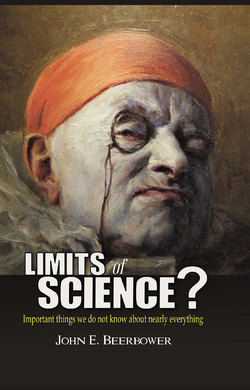Читать книгу Limits of Science? - John E. Beerbower - Страница 56
На сайте Литреса книга снята с продажи.
The importance of methodology
ОглавлениеNevertheless, I believe that the study of the philosophical underpinnings of the methods and methodologies employed by natural and social scientists can provide significant insights into the state, direction and uses of the scientific knowledge being pursued. As observed by John Neville Keynes: “In the long run, time cannot but be saved by making a preliminary study of the instruments of investigation to be used, the proper way of using them, and the kinds of things that they are capable of yielding. For in so far as methods of reasoning are employed without due regard to the conditions of their validity, the results gained must likewise be of uncertain validity… .” The Scope and Method of Political Economy, p.4. Indeed, one danger of not understanding these issues is that, as an even an earlier political theorist, Thomas Hobbes, warned, “...long study may increase and confirm erroneous sentences; and where men build on false grounds, the more they build the greater is the ruin.” Leviathan, Part II, Chapter 26 (1651).
Thus, I include this chapter not so much to identify important things we do not know about economics, many of which are believed to be painfully obvious by most students of politics and public policy, as to help identify and elucidate the methodological problems and issues that arise in all efforts to understand, and make predictions about, our world through the construction of theories.
I begin with a brief introduction to the historical roots and general content of the discipline now called economics.3 Then I discuss some of the early efforts by economists to understand and articulate what they were doing as social scientists. The issues involved are illustrated by an examination of the theoretical debate within the profession and among some close observers about the traditional “theory of the firm” and the fundamental assumption of profit maximization, a debate that spilled over to challenge the more pervasive and fundamental concept of “maximization” itself. The example is interesting because several traditional economists used as a “sword” in the debate some of the concepts of philosophy of science, attempting to demonstrate that their critics simply did not understand the nature of scientific theories and were advancing arguments based upon mere misunderstandings and mischaracterizations. I conclude by offering some observations about economics as a science, with some implications about scientific knowledge more generally, suggesting that the traditionalists may have found themselves “hoisted on their own petard.”
